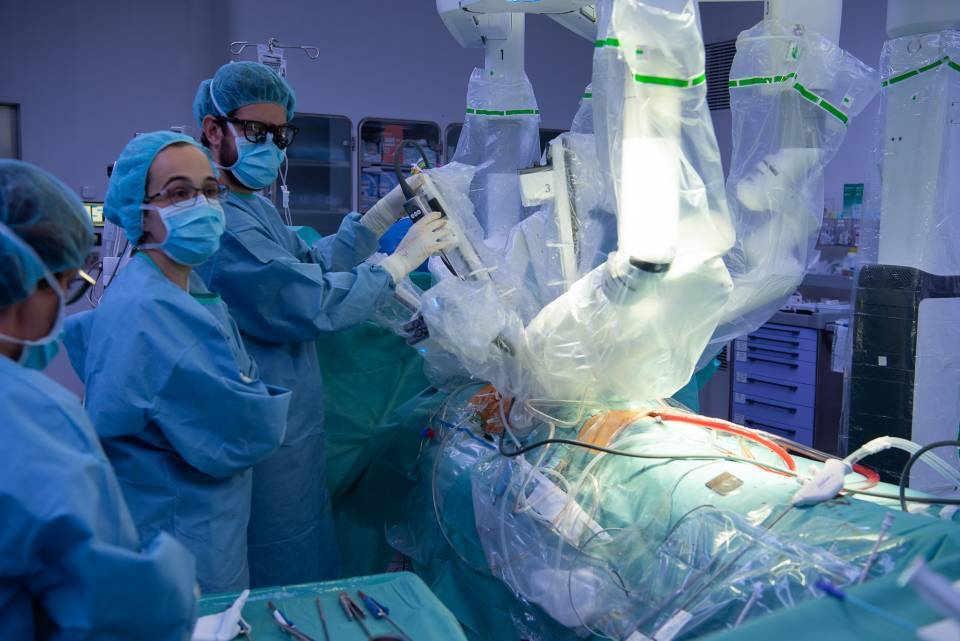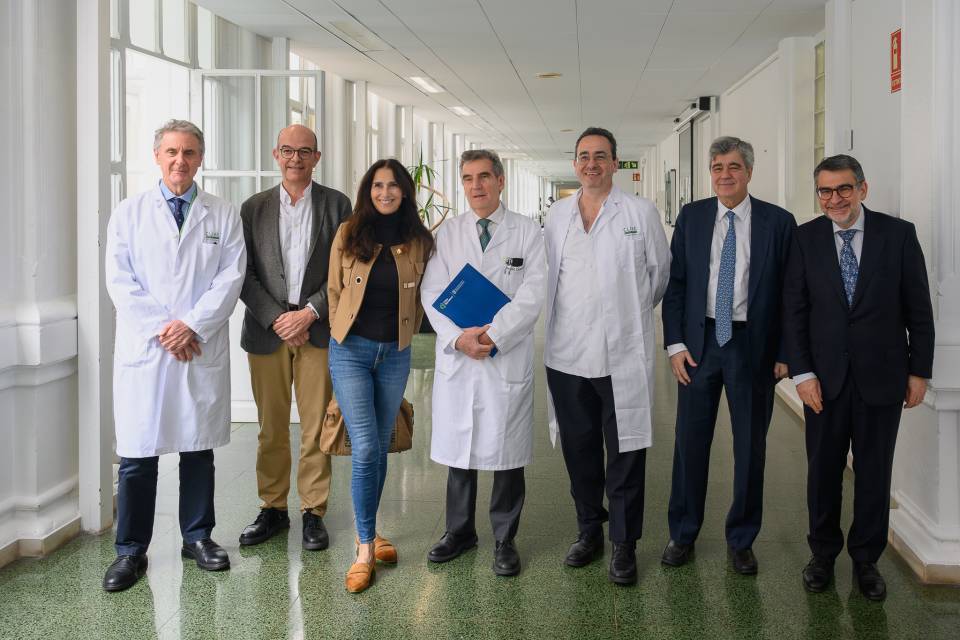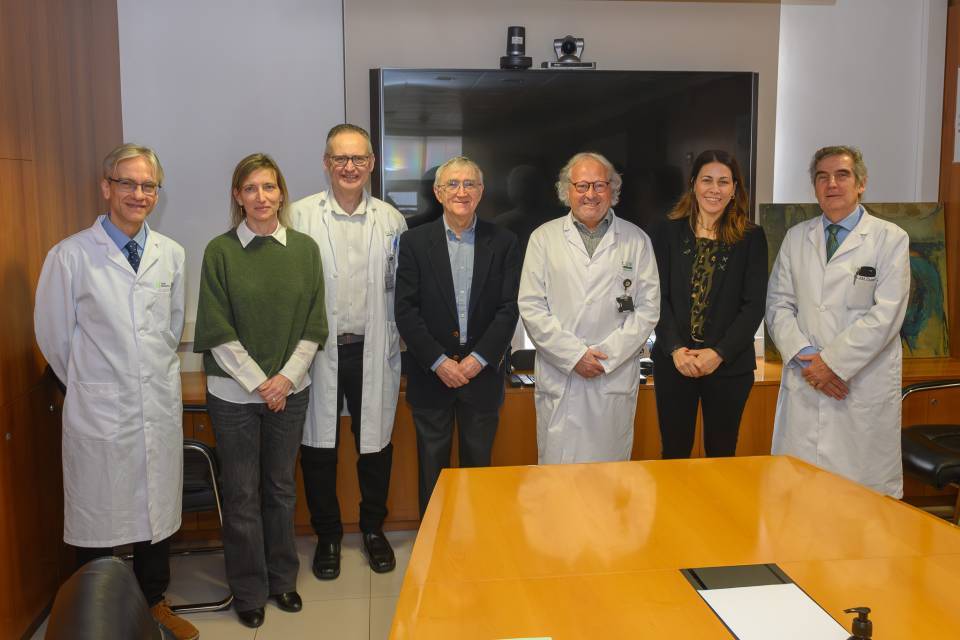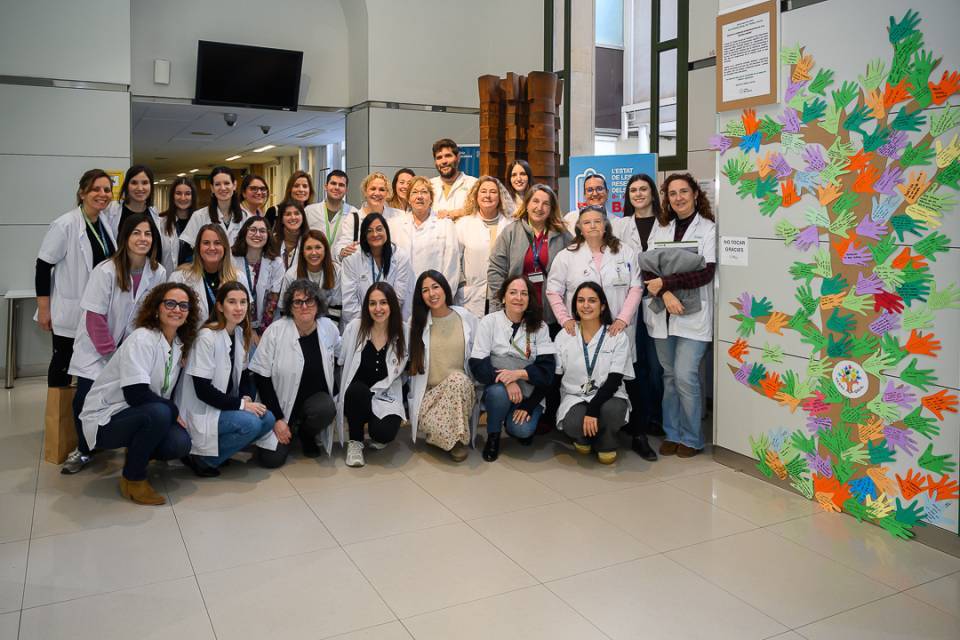The Ministry of Health grants this accreditation through the Quality Agency after the successful completion of a verification process with a series of common standards, and other more specific ones. In total, the Clínic currently has 23 CSUR accreditations and is in the process of evaluating 10 more calls for applications. The management and the accreditation process for the different specialties at the Clínic are dealt with by the Clinical Quality and Safety Management led by Dr Faust Feu.
The hospital’s accreditations in highly complex procedures and care recognize, among other things, the clinical expertise of the medical teams, their research excellence, the transfer of knowledge to other professionals in the system through networking, and the suitability of the centre’s facilities and equipment.
The new accreditations recently received by the hospital are for the following programmes:
- Pancreas transplantation. This is a re-designation (the Hospital already had this accreditation). Pancreas transplantation is one of the few therapeutic options for restoring normoglycaemia in the long term in patients with diabetes mellitus, and avoids dialysis treatment in its simultaneous pancreas-kidney transplant modality in diabetic patients with kidney failure. Pancreas transplantation is a complex procedure from a surgical, immunological and infection point of view. Patients with diabetes mellitus have a high risk of developing cardiovascular disease and infections, and it has been proven that centres with a large number of transplants have better results. Therefore, the main objective of identifying and designating CSUR centres for pancreas transplantation in adults with insulin-dependent diabetes mellitus and end-stage renal disease is to improve pancreas transplantation outcomes at a national level.
- Congenital heart disease in adults. This is another re-designation for the Hospital. Congenital heart disease is a highly complex condition with a high prevalence in the population (between 300 and 600 cases per 100,000 inhabitants), and it is expected to increase in coming years. For this reason, these patients require treatment in highly specialized units with a significant degree of knowledge of therapeutic, reparative, palliative and transplant procedures, most of which require extracorporeal circulation and, in some cases, ventricular assistance and/or heart transplantation.
- Complex mitral valve repair surgery. This is another re-designation for the Hospital. It is a cardiac surgery technique that aims to restore the correct functioning of the mitral valve, preserving the valve and the subvalvular apparatus, as an alternative to mitral valve replacement. Mitral valve regurgitation has a very variable prognosis depending on its aetiology. When there is involvement of the anterior flap, commissures, both flaps, diffuse involvement of the posterior or anterior flap, calcified rings, or rheumatic valvulopathy, mitral valve repair should be carried out in centres with an adequate volume of activity and with a high level of expertise in these techniques.
- Inherited heart conditions. This is another re-designation for the Hospital. Inherited heart conditions, channelopathies and hereditary aortopathies are the cause of the majority of cases of sudden death in young people, and are also an important cause of sudden death in older people. These are diseases that mainly have an autosomal dominant inheritance, a very heterogeneous clinical presentation, and an evolution that is hard to predict. The prevalence of these diseases is around one case per 5,000-10,000 people and they require specific diagnostic studies adapted to their nature, including genetic, imaging and electrophysiological studies. The identification and designation of reference units for these pathologies is based on the need for intensive dedication from cardiology specialists, which allows them to be very up-to-date in their knowledge of these heterogeneous diseases, especially with regard to the clinical implications of genetic information.
- Complex hepatic vascular disease in adults. This is a group of rare diseases characterized by the complexity of diagnosis, the difficulty of treatment and the need for a multidisciplinary approach. They include non-cirrhotic non-tumoural portal vein thrombosis, Budd-Chiari syndrome, porto-sinusoidal vascular disease, and the hepatic manifestations associated with congenital heart disease and their correction. Despite their low frequency, these diseases are associated with a high consumption of resources due to the difficulty of diagnosis and the techniques necessary for their monitoring and treatment. The designation of reference units for the care of patients with non-cirrhotic liver diseases of vascular origin should allow for the provision of highly specialized and multidisciplinary care.
- Aortic valve-sparing surgery in adults. Aortic insufficiency is a disorder of the aortic valve, which allows pathological diastolic blood flow from the aorta back into the left ventricle. This can be caused by congenital or acquired abnormalities, which lead to intrinsic structural changes in the aortic valve itself and/or any other component of the functional aortic unit. In recent years, techniques for the repair and preservation of aortic valves have been developed, the main benefit of which is evident in mid- and long-term follow-up, since an intervention-free survival at 10 years has been demonstrated in the vast majority of patients. Nevertheless, these techniques are highly complex and, therefore, these patients should be treated in centres that have proven expertise in these procedures.




